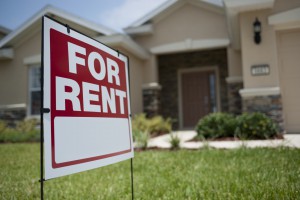San Francisco Bay Area Airbnb Laws
With Super Bowl 50 just days away, many San Francisco Bay Area residents are looking to capitalize on the Airbnb market. Luxury hotels are practically booked. Rooms in the prestigious Fairmont Hotel range from $1,500 to $10,000 a day with a minimum stay of four days. Even lower-end hotels like Travelodge are charging $1,100 a night. In the alternative, approximately 75% of Airbnb listings in San Francisco bay area are asking more than $360 per night. Someone can even rent a tree house in Burlingame, California for $495 a night the five days leading up to the Super Bowl.
With so many people looking to Airbnb to make some easy money during Super Bowl week, it begs the question, what are the San Francisco laws pertaining to Airbnb?
What is Airbnb and How Does it Work?
Simply put, Airbnb is a room letting website. It allows people to list, find and rent lodging from all over the world, including popular destinations such as Paris, London, Berlin, and state side in cities such as San Diego, New York, and Miami. It is privately owned and is reportedly worth $25 billion. The primary source of Airbnb’s revenue comes from service fees from bookings.
What are the Airbnb Laws as They Pertain to San Francisco?
In October 2014, San Francisco Mayor Edwin Lee signed San Francisco Ordinance No. 218-14, thereby allowing some residential properties to conduct short-term residential rentals. Here are the basic rules:
Primary Residence Requirement. To register a listing, you must live in the residence for at least 275 days per year. If you haven’t lived there for an entire year, you must have lived in the specific residential unit for 60 consecutive days prior to your application. If you own a multi-unit building, you may only register the specific residential unit in which you reside. 
Liability Insurance. Hosts must maintain at least $500,000 of liability insurance or provide proof that liability coverage in an equal or higher amount is provided by the hosting platform (such as Airbnb).
Limits. You may only register one residential unit, and all residential units subject to the Affordable Housing Program or units designated as below market rate (BMR) are ineligible.
Why is Airbnb Controversial?
In November 2015, Proposition F, a measure that would have substantially curbed short-term rentals, lost by 55% to 45%. It was one of the most contentious issues on the ballot.
Opponents of Airbnb argue that using housing as hotels diverts scarce housing to lucrative but illegal all-year round hotels. San Francisco typically only sees 2,000 new units added to the housing market each year. A few hundred units off the market significantly impacts an already over-extended city.
Landlords are also largely against Airbnb. In San Francisco, most tenants are covered by rent control such that the rent can only be raised by a certain amount each year. So what are they upset about? Let’s say a tenant has been renting a one bedroom, one bathroom unit since 1980 and pays $800 a month due to rent control. If the tenant is able to get $500 a night the four days leading up to the Super Bowl, the tenant stands to make $2,000 on the transaction, pocketing $1,200 after she pays her monthly rent. Landlords believe this type of arrangement unfairly enriches the tenant. Many landlords include “no subletting” clauses in their residential leases to prevent their tenants from utilizing Airbnb.
And who is pro-Airbnb? Airbnb, which advertises their company as providing middle-class people a way to make ends meet. Tenants may see Airbnb as an easy way to make extra cash. Homeowners who elect to use Airbnb also believe they have a right to do with their property as they please, and utilizing Airbnb can help pay their mortgage. Many Airbnb users have great experiences and are able to visit places which would be prohibitively expensive if not for Airbnb.
Regardless of if you are for or against Airbnb, one thing is for certain – both hotels and Airbnb hosts stand to make a lot of money during Super Bowl weekend.

Comments